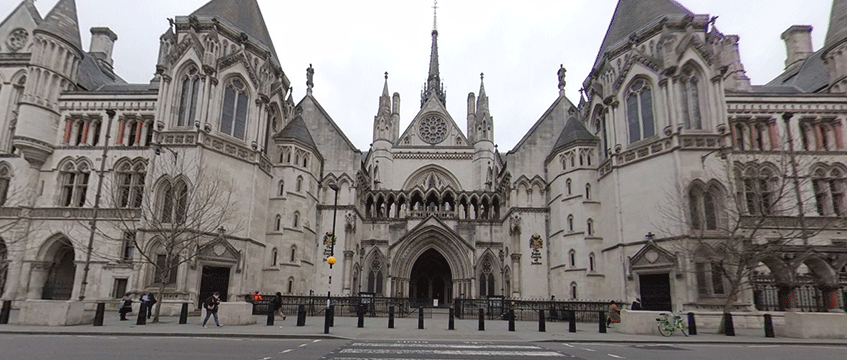A Court of Appeal judge has dismissed most of an appeal saying that a 12-year-old-child should be able to understand the issue of justice at stake.
The case involves billionaire businessman and department store owner Philip Day, who found himself in a dispute with Natural England after he “caused the felling of 43 trees” to construct a vehicle track on his country estate in Cumbria, which is used for shooting.
According to the ruling, written by Court of Appeal judge Coulson LJ, the trees were felled shortly after he bought the estate in 2010 and were in an area of special scientific interest.
“Despite the appellant’s vigorous attempts to obstruct them with threats and bullying, local residents brought the matter to the attention of Historic England,” Coulson LJ wrote.
This led to Day being charged under the Wildlife and Countryside Act 1981. He pleaded not guilty in the Magistrates Court, before pleading guilty in the Crown Court accompanied by a document written by his lawyers entitled “Basis of Plea and Points for Mitigation”.
“This document sought at every turn to minimise the appellant’s responsibility for causing the carrying out of the prohibited operations. It was not accepted by Natural England,” the judgment said.
And, following a four-day hearing, the Crown Court judge rejected the mitigation.
“The trial judge was also very critical of the aggressive tactics he had adopted towards the local residents: as the judge put it, his ‘deeply unattractive’ conduct towards them could be summarised as saying ‘don’t mess with me’. The trial judge also noted the absence of ‘a scintilla of apology and meaningful acceptance of responsibility’ on the part of the appellant,” Coulson LJ wrote.
The Crown Court judge ordered Day to pay a fine of £450,000 plus Natural England’s costs of £457,317.
And thus began nine years of civil actions that appeared to be attempting to attack Day’s criminal conviction.
Day appealed against the size of the fine, only to have the Lord Chief Justice ruling that a fine in the millions would have been inappropriate under current rules, so a fine of £450,000 is not disproportionate.
Undaunted by his failure so far to get his own way, in 2018 Day decided to sue his crown court legal team at Womble Bond Dickinson for damages. This claim argued that he would have been acquitted if property defended, and that if properly advised, the case would have been heard in the Magistrates Court where he would have been fined no more than £40,000.
Coulson LJ said in the ruling: “On one view, it could be said that the claim against [Womble Bond Dickinson] was a further manifestation of the traits previously noted by the trial judge, namely the appellant’s refusal to accept responsibility for his conduct, and his willingness to blame others.”
This resulted in a High Court judgment in April last year, which dismissed the claim and called it “an abusive collateral attack on a subsisting conviction” because it is predicated on the idea that the Crown Court judge would have come to a different conclusion if Day’s lawyers acted differently.
This ruling did not discourage Day from challenging the ruling at the Court of Appeal.
And, in a judgment formally handed down (under the new Covid-19 Protocol) last week and later distributed via Bailii, Day had the majority of his appeal dismissed.
In his ruling, Coulson LJ said “with reluctance” he accepted “as a matter of principle” one of the arguments raised by Day’s legal team. He said that, if it could be proved that Day’s legal costs were higher because of negligent legal advice that led to a Crown Court case rather than a Magistrates Court case, that argument could be made at a future hearing.
“To this limited extent, I would allow the appeal,” he said.
As for the other arguments, Coulson LJ was unequivocal.
He said that Day’s barrister, Roger Stewart QC, referred to a test that could be used to help the court make its decision, “namely whether an intelligent 12-year- old child would understand why an otherwise arguable claim against the appellant’s previous solicitors should be prevented at an early stage from going any further”.
“It was unclear to me what the source of this test was, but I am happy to adopt it to summarise my conclusions,” Coulson LJ wrote.
“It seems to me that Mr Stewart’s putative 12-year-old child would appreciate quite quickly that it was sensible and necessary for the final decisions in criminal courts to be just that – final – and that subsequent satellite litigation, re-arguing points that could and should have been raised before, and which went (directly or indirectly) to undermine the conviction and its consequences, was inappropriate, wasteful of resources, and likely to bring the law into disrepute.”
“For these reasons… I would allow the appeal to the limited extent noted… and would dismiss the remainder.”
Day v Womble Bond Dickinson (UK) LLP
Court of Appeal, Civil Division (Lord Justice McCombe, Lord Justice Floyd, and Lord Justice Coulson)
Mr Roger Stewart QC (instructed by Elliot Mather LLP Solicitors) for the Appellant
Mr Ben Hubble QC (instructed by CMS Cameron Mckenna Nabarro Olswang LLP) for the Respondent
Covid-19 Protocol: This judgment was handed down remotely by circulation to the parties’ representatives by e-mail, released to BAILII and publication on the Courts and Tribunals Judiciary website. The date and time for hand-down is deemed to be 10:30am, Thursday 26 March 2020.








